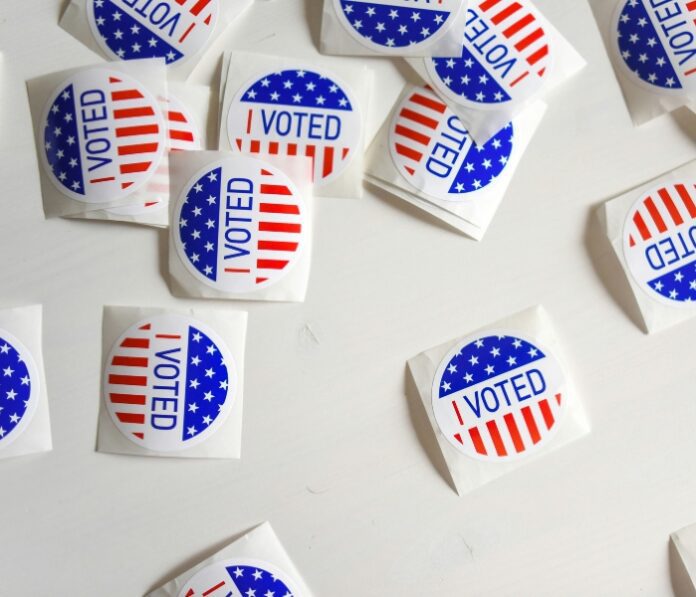
Surprises and Swings in the 2024 Presidential Election
Disclaimer: All articles published under this section are the opinions of the respective authors and do not necessarily reflect the opinions of The Cor Chronicle.
Attempted murder, accusations of treachery and a decision destined to affect the fate of the world: we’re talking not of the latest fantasy film, but of the 2024 presidential election. Last week, millions of Americans gathered at polling places to elect, once again, the captain of our “Ship of State.”
By 2 a.m. on Nov. 6, the verdict was clear: former President Trump was to return to Washington, while Vice President Harris was given her ten weeks’ notice. In addition to winning 312 electoral votes to Harris’ 226, Trump secured the popular vote. Republicans secured the Senate, and at the time of printing, they lead the House race.
Prior to Election Day, analysts predicted a tight race. How, then, was the outcome so decisive? Let’s examine some underlying forces at work in the nation and in both campaigns.
The first surprise of this election was the major demographic shift between the parties. The GOP, long decried as the party of old white men, presented a new, younger and more diverse face at its National Convention this past summer, reflecting a broader national change.
The Convention’s speakers ranged across both genders and many racial and religious backgrounds, from UNC fraternity brothers, to a biracial Millennial model and activist, to a Sikh religious liberty lawyer.
This change isn’t confined to the upper echelons of the party. Nationwide, traditionally left-wing segments are swinging right.
Exit polling showed Donald Trump scoring a 66% increase in support among black Americans and capturing a historic 46% of the Hispanic vote, +40% from 2020.
Significantly to us as students is the ideological movement occurring in our age bracket. Recently, Americans aged 18 through 29 have polled as more conservative than the neighboring Millennial cohort; accordingly, exit polls show support for Trump among this age range increasing by 7-10 percentage points, roughly +25%, from 2020. In perspective, Generation Z voted only 5% to the left of Americans 65+. Why?
In addition to factors such as young Americans’ concerns with the economy as they enter the workforce, Trump’s campaign this cycle increased efforts to engage the youth. Over the summer, the then former president joined TikTok, garnering a following nearly triple that of VP Harris. Trump also made several appearances on podcasts— a platform with a large Generation Z audience.
Though certainly intriguing, the demographic upheaval does not fully explain this election’s outcome. After all, we have yet to address the second half of the equation.
Even as Vice President, Kamala Harris was relatively unknown to the nation at her selection as Democratic nominee. Her prior experience as a 2020 presidential candidate was short-lived and relatively obscure.
Widely considered a poor public speaker, Harris opted to work behind the scenes as VP. This, combined with her late entrance into the race and persistent reluctance to give interviews engendered apathy among voters.
Furthermore, when she did campaign, Harris focused largely on two factors: support for abortion and opposition to Donald Trump. Although Harris secured support from many pro-abortion Americans, others were unsatisfied with a single-issue campaign. Indeed, exit polling shows only 14% of Americans considered abortion the preeminent issue this election. Further, over a quarter of pro-choice Americans voted Republican.
By repeatedly denouncing Trump, Harris attracted many Americans who were opposed to the former president, but she neglected to position herself as a champion in her own right. Voters desire a positive rallying point, and the enemy of their enemy did not garner sufficient enthusiasm.
But Harris’s most critical mistake was her failure to differentiate herself from the Biden administration. Election Day exit polling revealed that 72% of voters nationwide felt discontent or angry regarding the nation’s direction.
The percentage of voters stating that they were “worse off” under the current administration reached record highs, topping numbers from the 2008 Recession. Thus, Harris’s key role in the administration and stated lack of intention to pursue significant policy changes if elected proved fatal.
Finally, we will visit a distinctly modern aspect of the 2024 election: memorability, or, if you will, meme-ability. In a time of decreasing attention spans, simply capturing public notice, even relative to something as monumental as a presidential election, is challenging.
As it turned out, events beyond the control of either party generated a flood of heavy media coverage for Donald Trump. Although being shot is hardly an ideal means of gaining political capital, for Trump it had precisely that effect.
Indeed, some critics accused the then former President of staging his near-death experience for that purpose. Add to this a highly reactive and creative PR campaign, and it’s not surprising that the boisterous New Yorker captured the public’s notice– and their vote.
Emily Boulet is a sophomore English major. She is a member of the Irish Dance Club.
